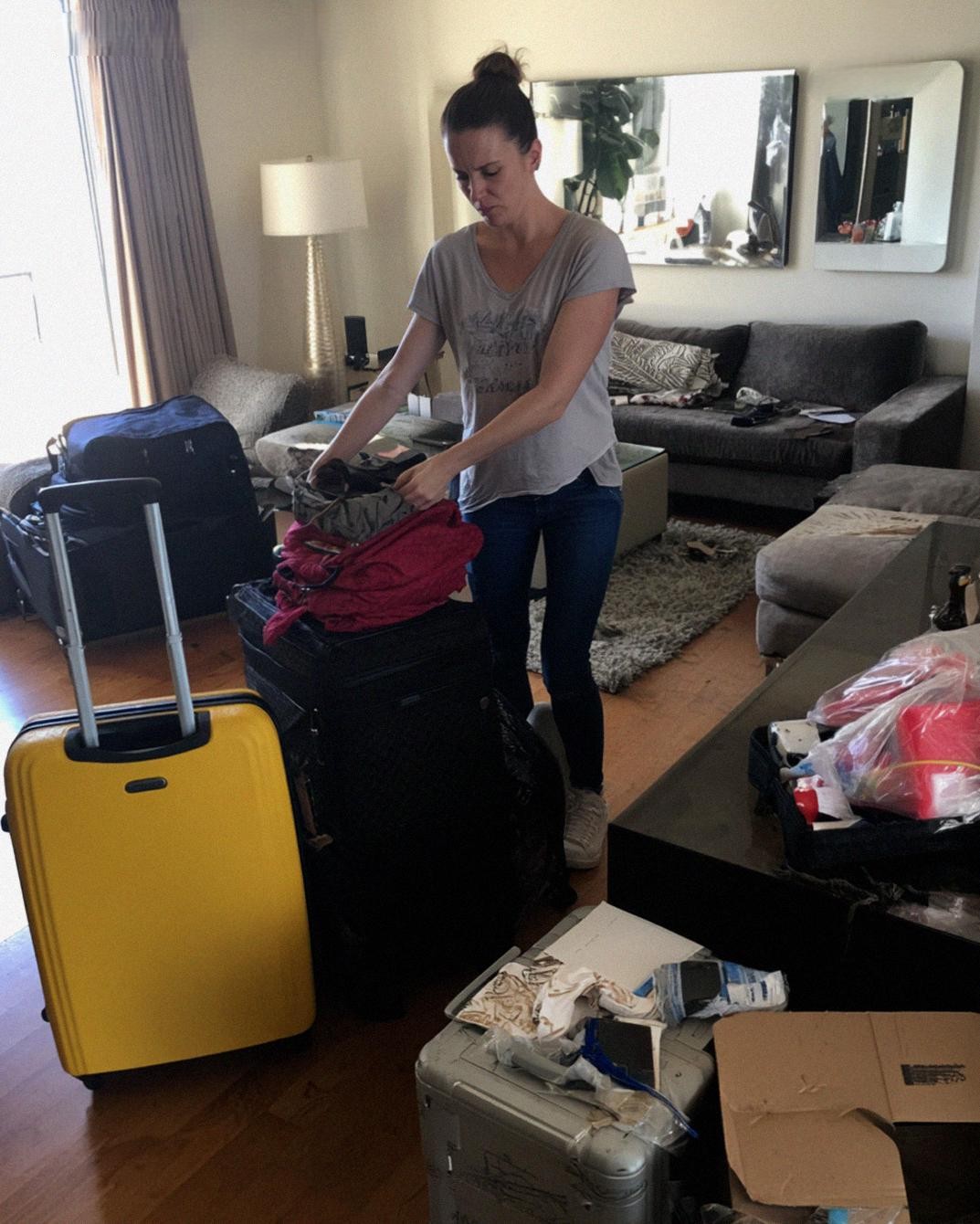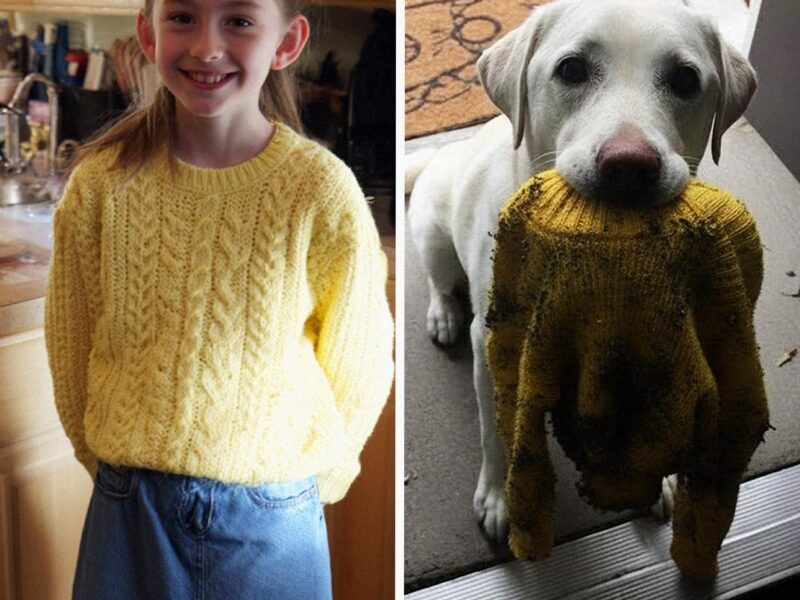I never thought the day would come when my own son and his wife would push me out of the house that held every memory of the man I loved. Yet that was exactly what happened. And though it broke me at first, fate had its way of balancing the scales.
My name is Linda, I’m 65 years old, and my life was forever changed fifteen years ago when my husband, Harold, died of a sudden heart attack. We had built our home together from nothing—every beam, every nail carried our dreams. His presence lingered in every corner. His tools were still neatly arranged in the shed, just as he’d left them. The porch swing he surprised me with one summer still creaked with the morning breeze. Even the lilac bush by the fence, the one he planted on our 25th anniversary, bloomed faithfully each spring as if to remind me that he was still here in spirit.
Losing Harold was the kind of grief that settles deep into your bones. I survived only because I wasn’t completely alone. My son, Thomas, moved back in shortly after his father’s death. We didn’t always agree on everything, but we had each other. We laughed, argued, forgave, and shared meals. He handled the bills and I kept the house warm. I truly believed that we had found our rhythm.
By then, my health had started its slow decline. Arthritis stiffened my hips, and COPD made every breath feel like I was dragging air through a straw. I could still manage cooking and cleaning, but I needed someone nearby in case I had a bad episode. Thomas always promised me: “Mom, I’ll never leave you.” And he proved it by driving me to every doctor’s appointment, waiting patiently with a coffee in hand, and making sure I got home safe. I believed him.
Then came Vanessa.
He met her at a work seminar, I think, and everything moved too fast. Within months, he was talking about marriage. He had that spark in his eyes, the kind you only see when a person feels they’ve found their forever. At first, Vanessa seemed sweet. She brought me tea when I was coughing, smiled often, and spoke in soft, measured tones. When they got engaged, I supported them wholeheartedly.
I even encouraged them to live elsewhere, telling them they deserved their own space. I reached out to my daughter, Rebecca, who lives in Oregon, to ask about arranging part-time care for me. But Vanessa insisted they stay. “Your mom shouldn’t be alone,” she told Thomas, her hand on his arm. “We’ll take care of her together.” Her words touched me. I thought I was lucky to have such a caring daughter-in-law. I couldn’t have been more wrong.
At first, the changes were small. She reorganized the kitchen, placing the pots and pans high up where I couldn’t reach without climbing a chair. When I asked her about it, she smiled. “Don’t worry, Linda. You don’t need to cook anymore—I’ll handle it.” But she didn’t. Most evenings, when Thomas worked late, I was still the one making dinner, aching at the stove while she scrolled on her phone.
Then she moved the laundry to the basement. “It just makes sense since the washer’s down there,” she said. I reminded her that stairs were painful for me. “I’ll do the laundry,” she promised. But the basket sat for days until I finally gave in, gripping the railing as I struggled down, praying I wouldn’t fall.
One day while I was at therapy, she even removed my recliner—the one Harold had saved for and gifted me after my first big hip flare-up. In its place sat a stiff modern chair that brought me no comfort. “Doesn’t the room look nicer now?” she asked with a proud smile. I nodded politely, but that night I cried into my pillow. It felt like she was erasing me piece by piece, along with the life Harold and I had built.
It didn’t stop there. My teacups moved to the highest cabinet. My blanket disappeared from the couch and reappeared folded away in storage. She replaced the rugs with fancy ones that made me slip. Whenever I asked why, her answers were always the same: “It looks nicer,” or, “You’ll get used to it.” But I didn’t. I felt like a guest in my own home.
The final straw came when she refused to take me to my therapy sessions. At first, Thomas had always done it. But when his work schedule got in the way, Vanessa was supposed to step in. Every time I asked, she had an excuse. “I have plans with a friend.” “I’m too busy.” “You’re perfectly capable of calling a cab.” So I did. Twice a week, I bundled myself up, grabbed my cane, and struggled into taxis while she sat at home, cozy under the blanket that once belonged to me. When Thomas asked, she told him sweetly, “Oh, she likes being independent.” But I wasn’t independent. I was abandoned.
Then came the night at dinner when Vanessa leaned across the table and, in her softest voice, suggested, “Maybe it’s time Linda considered assisted living. It would be safer. Professionals could take care of her.” My fork froze. I looked at Thomas, begging him with my eyes. “Son, please, I can manage. I want to stay.” But Vanessa rested her head on his shoulder, whispering about what was “best for me.” And Thomas just nodded.
Weeks later, I woke to the sound of my suitcase being zipped. Thomas stood in the hall, unable to meet my eyes. “Mom,” he said, “this is for the best.” Behind him, Vanessa leaned against the wall, arms crossed, smirking. I begged him not to do it. I reminded him his father had built this house with his bare hands. But he carried my bags to the car in silence and drove me to a nursing home.
When Rebecca found out, she came storming back. She still had her key, so she let herself in. Vanessa tried to greet her, but Rebecca cut her off. “Save it. You don’t get to stand in Mom’s house and pretend you’ve done her a favor. You manipulated my brother, and it ends now.”
She pulled out the deed to the house, proving it was still in my name. Vanessa’s mask cracked instantly. She screamed, accused me of manipulating Thomas, and stormed out with her bags a week later, her voice echoing: “You’ll regret this!” But Thomas didn’t chase her. For the first time, he saw her clearly—the woman who had been erasing me all along.
The days after she left were heavy. Thomas broke down, apologizing again and again. He bought me a new recliner and tucked a note into the seat: “For you, Mom. I’m sorry I forgot who you were.” I forgave him, but told him it would take time and honesty to rebuild trust.
Now, Rebecca visits often, Thomas drives me to every appointment, and for the first time in years, the house feels like mine again. The lilac bush still blooms by the fence, the porch swing still creaks in the breeze, and I know Harold would be proud that I fought for the home we built together.
Because in the end, betrayal may cut deep—but karma always finds its way.


